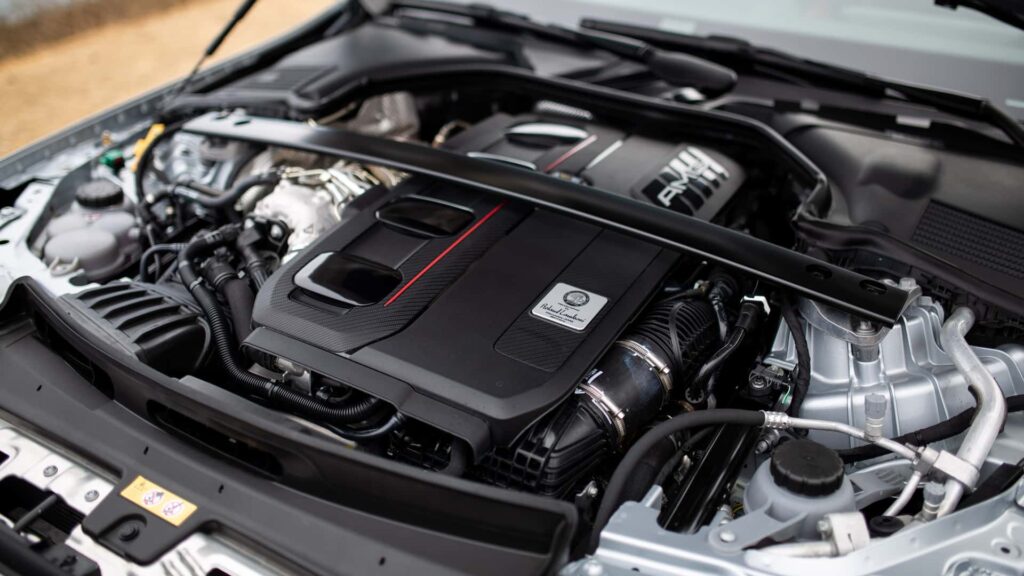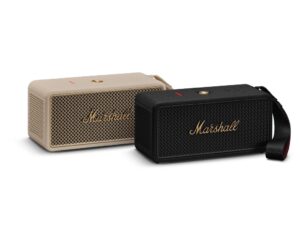
Mercedes-AMG has officially acknowledged that its four-cylinder hybrid engine did not resonate with its traditional customer base. This revelation comes as the company is reportedly developing a new V-8 engine, marking a significant shift in strategy. A senior company official, speaking anonymously, admitted that the electrified 2.0-liter engine failed to capture the interest of buyers, stating, “We’ve recognized that [people didn’t like it].”
The announcement comes as Mercedes-AMG reflects on its decision to replace the V-8 engine in the C63 with the M139l, a sophisticated four-cylinder hybrid powertrain. Despite its advanced technology, the engine did not meet the expectations of AMG enthusiasts. According to Autocar, the executive highlighted that while the drivetrain is one of the most advanced in a production car, it simply did not align with the desires of their core market.
Challenges and Costs of the Four-Cylinder Hybrid
The intricate four-cylinder engine will not be phased out immediately, but its future is uncertain. The high cost of adapting the engine to meet stricter Euro 7 emissions standards is a significant factor in its potential discontinuation. The company had initially believed that transitioning to a plug-in hybrid setup would help comply with EU regulations. However, the financial burden of making the engine EU7-compliant has proven to be prohibitive.
“There’s no doubt about its potential, this is one of the most sophisticated engines we’ve ever built, but the investment to make it EU7-compliant is very high,”
This development follows a period of experimentation with hybrid technology, as Mercedes-AMG sought to balance performance with environmental considerations. However, the move has not been well-received by all, particularly those loyal to the traditional V-8 engine configuration.
Looking Ahead: A Return to Larger Engines
With the M139l engine’s future in doubt, Mercedes-AMG is exploring other options. Beyond the anticipated V-8, the company is also focusing on further developing its inline-six engine, potentially incorporating mild-hybrid or plug-in hybrid technology. This strategy aligns with the broader automotive industry’s shift away from pure combustion engines, especially in Europe.
Ironically, engines with more cylinders may have a better chance of meeting stringent emissions regulations. The future of the C63 model remains uncertain, with rumors suggesting that it and the C43 could be replaced by a six-cylinder C53, utilizing the M256M powertrain.
Industry Reactions and Market Implications
Mercedes-AMG’s pivot back to larger engines marks a significant reversal from previous statements. Mercedes Australia CEO Jaime Cohen once predicted a widespread embrace of four-cylinder AMGs, while AMG CEO Michael Schiebe praised the C63’s “very, very progressive” drivetrain. However, Schiebe later conceded that the company could have better communicated the benefits of the complex hybrid setup, acknowledging that it alienated some V-8 loyalists.
Market competition has also played a role in the C63’s struggles. The availability of a six-cylinder BMW M3, with no electrification and a manual gearbox, at a lower price point has not helped Mercedes-AMG’s case. This competitive landscape highlights the challenges faced by automakers as they navigate consumer preferences and regulatory requirements.
Conclusion: A Lesson in Consumer Preferences
Mercedes-AMG’s experience with the four-cylinder hybrid serves as a reminder of the importance of aligning product offerings with consumer expectations. While innovation and environmental considerations are crucial, understanding and catering to the desires of loyal customers remain paramount. As the company moves forward, it appears committed to balancing technological advancement with the performance and driving experience that its customers have come to expect.
The automotive industry will be watching closely as Mercedes-AMG continues to refine its engine lineup, seeking to find the right mix of innovation and tradition in an ever-evolving market.







